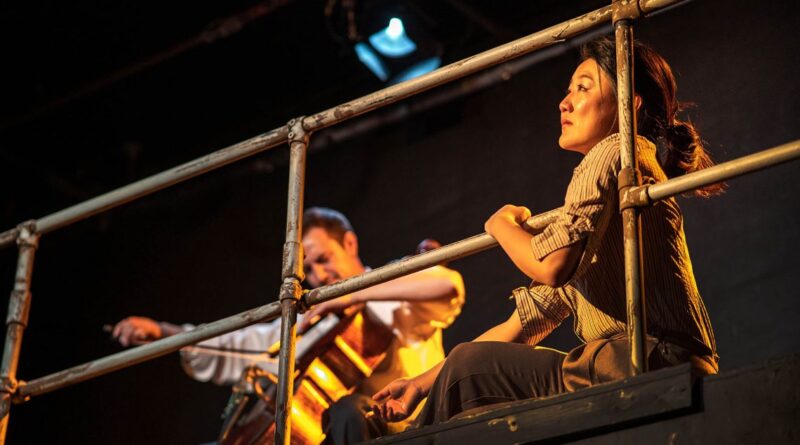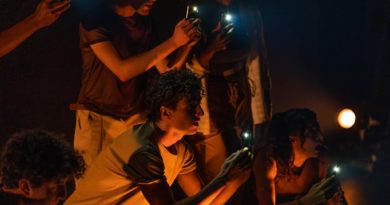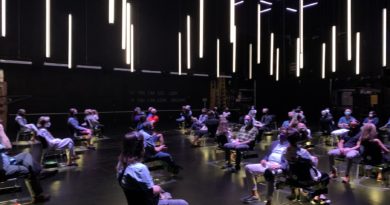Actor Rong Fu enters “The Year of the Cello” with SesayArts Magazine
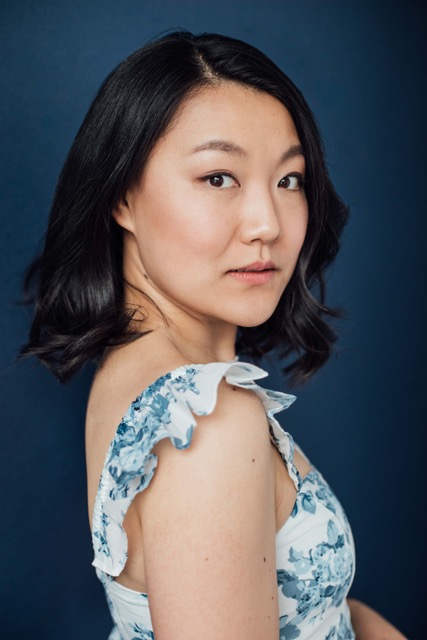
Marjorie Chan and Njo Kong Kie’s new play The Year of the Cello combines language and music to enable the expression of feelings that transcend words. Presented by Theatre Passe Muraille and Music Picnic, the world premiere of this imaginative production stars Toronto-based stage and screen actor Rong Fu and cellists Bryan Holt and Brendan Rogers. This inventive work runs from October 15 to 29 in the newly-renovated Theatre Passe Muraille Backspace.
Created to be accessible to blind and sighted audiences, The Year of the Cello is sound-led and culminates in a lament for love lost and a Hong Kong that used to be. Presented in a relaxed format, the production is directed by Chan and designed by Echo Zhou, with the score and soundscape created by Kong Kie. The in-person run will be followed by a digital audio-only experience that will be created with binaural sound technology and presented in collaboration with The Cultch’s RE/PLAY: Digital Playground.
The Year of the Cello is set in 1920s-1930s Hong Kong, which was still suffering from a bubonic plague pandemic that began in 1894 and returned annually until 1929 – and was more than 93% fatal. The story, narrated by Fu’s character of Wen, depicts a life-altering encounter of Wen and and her friend Li-An with The Cellist, whose music unlocks what has been left unspoken. Through the fallout of this fateful meeting, the show explores the power of music to resurface memories, process grief and, ultimately, to heal.
Fu immigrated to Canada from China with her family when she was eight. She got her acting start at age twelve when she joined her middle school’s drama club – in part because of a crush on a boy. Fu then pursued her art in earnest, graduating from the Claude Watson Arts Program and York University’s Acting Conservatory, where she trained in classical acting. Since, she has worked steadily on stage at prominent theatre companies, including the Shaw Festival, Soulpepper, Tarragon, Vertigo and Roseneath Theatre. On screen, she has held recurring roles on Star Trek: Strange New Worlds, Skymed, The Kings of Napa, Pretty Hard Cases, Good Sam. She is also one of the leads on Simu Lui and Nathalie Younglai’s new show Hello (again) on CBC Gem. Fu is also a writer. Her short film May Flowers premiered on CBC Gem: Canadian Reflections in 2020, and she is part of the writing team on The Next BIG Thing (Day by Day Pictures), a musical anthology feature following five artists whose lives are changed forever when they unknowingly intersect.
SesayArts Magazine had the pleasure of speaking with Fu about performing in The Year of the Cello, sharing the stage with music (aka the “other main character of this show”), and the surprising way she satisfies an ever-present competitive streak.
SM: What attracted you to The Year of the Cello and to the character of Wen?
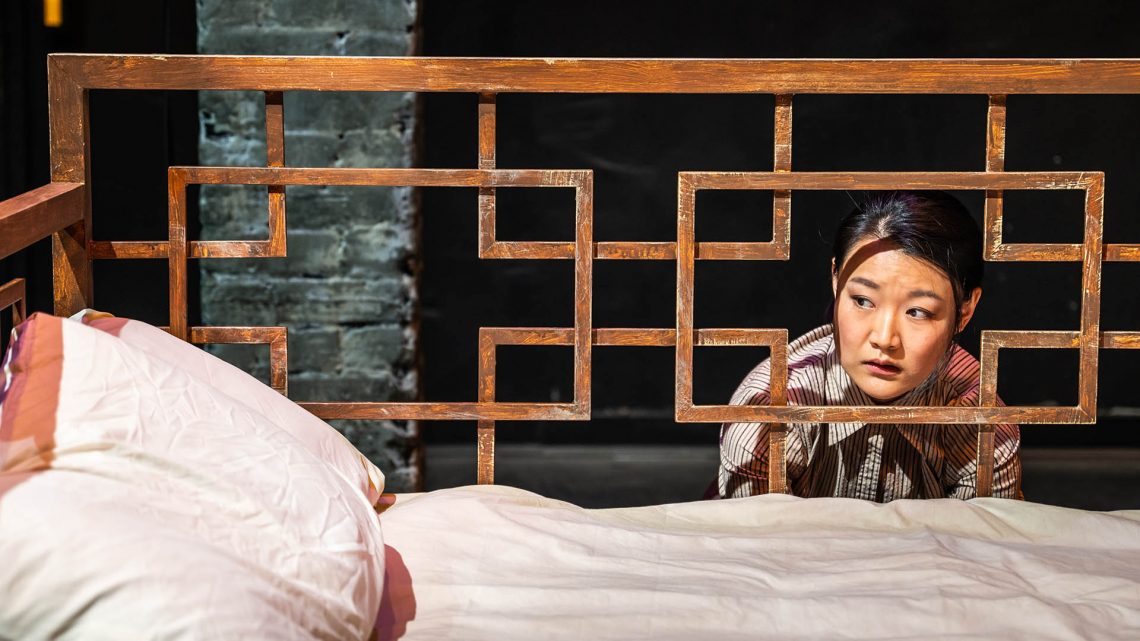
RF: I have long loved Marjorie Chan’s writing and Njo Kong Kie’s music. They are both tremendous creators and I am so glad to be working with them on this piece. I read an earlier version of this play in a workshop back in 2015 and it was quite a different play then. A lot of time has passed since and when I read it again this year, I was astounded by how much the character of Wen resonated with my current state of being. I lost my father late last year, and I feel like with Wen, I am able to have a different dialogue about grief and what it means to hold someone in your heart.
SM: I read that The Year of the Cello is set in Hong Kong in the early 20th century, a very different time with different social values. The play’s characters survived periodic outbreaks of the bubonic plague, so their journey of surviving and healing from a pandemic doesn’t feel remote. Would you like to speak about the relatability of this piece to current audiences who themselves are living through a pandemic and all its implications?
RF: It’s a bit of an accident that this play was set at a time of the bubonic plague. I think through the pandemic we’ve experienced a collective grief which is quite extraordinary. This play carries the echoes of isolation and uncertainty, which I think audiences will certainly respond to in their own way. When I read the parts describing the plague, I felt a connection and understanding to it that can only be gained through experiencing it myself.
SM: The Year of the Cello sounds incredibly unique in terms of themes, story and format. What can audiences expect to experience at the show?
RF: The story of The Year of the Cello is told by an actor and a cellist, it’s quite unique to see a duet of sorts between language and music. Being inside the rehearsal process I am hesitant to say what the audience can expect, since we’re still making new discoveries each day. It will be a very intimate performance and I am looking forward to seeing how an audience’s presence will affect the piece. I can tell you that there will be storytelling and there will be music. I can only hope that this play will allow the audience to think about their loved ones.
SM: Music has an incredible power to soothe and heal. What would you like audiences to know about this aspect of the play?
RF: Music is the other main character of this show. The music that Kong Kie has selected and composed are meant to tell a story, and to express things that cannot be expressed with words. Especially with the cello, an instrument that resonates at such a human level. I hope audiences will enjoy the live music which is played brilliantly by our cellists, Bryan Holt and Brendan Rogers.
SM: What would you like people to know about you? Anything that might surprise us?
RF: I can be very competitive and sometimes when I’m walking through the city, I like to secretly race the other people walking in front of me.
SM:What has been the biggest surprise to come out of working on The Year of the Cello, and also the biggest challenge?
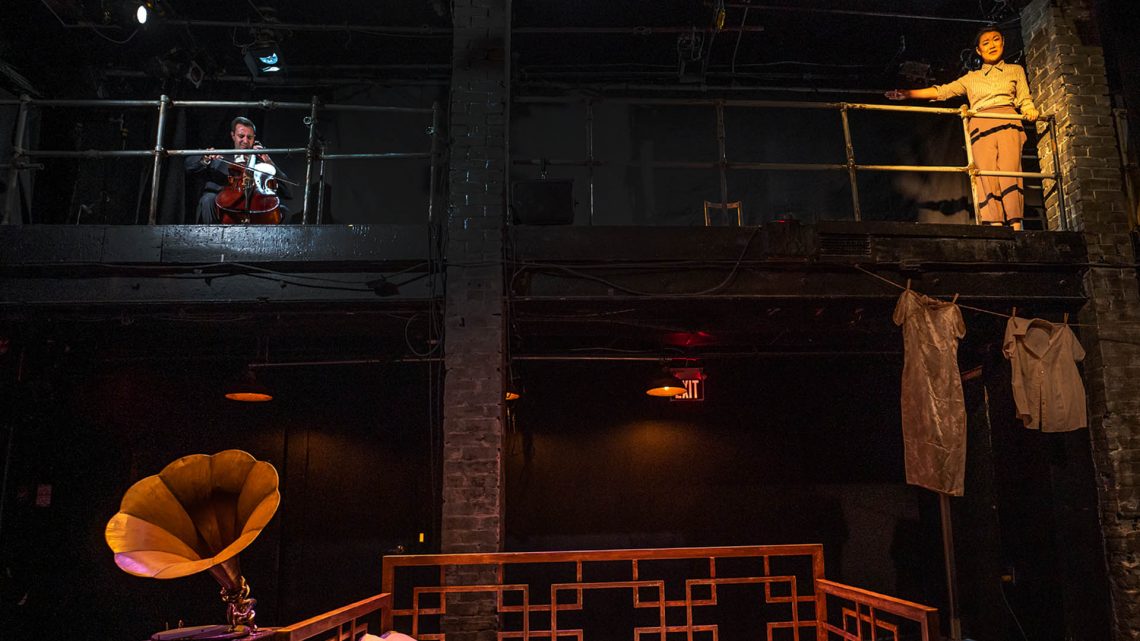
RF: The biggest surprise when I read the play was that it was all monologues. When I read it in 2015, it was a three-hander with two other actors. I’ve never done a show where I have to speak all the lines! The biggest challenge has been trying to hold all of the words in my mind and body. I’ve been mostly working in film and tv in the past two years, where I only need to learn lines for a day. I have found that I really need to work on my stamina to hold such a large volume of text. My brain feels very full.
Tickets are to The Year of the Cello are Pay-What-You-Can-Afford and available on the Theatre Passe Muraille website.
© Arpita Ghosal, SesayArts Magazine, 2022
About The Author
Arpita Ghosal
Arpita Ghosal is a Toronto-based arts writer. She founded Sesaya in 2004 and SesayArts Magazine in 2012.
Visit About Us > Meet the Team to read Arpita’s full bio …

